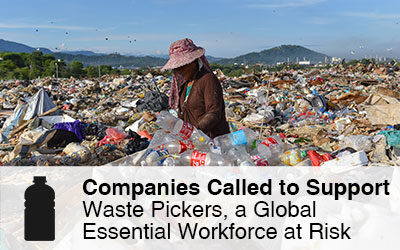COVID-19 Guidance
Information and Resources for Responding to the COVID-19 Pandemic in Supply Chains.
Please note: we review and update these resources as possible but cannot guarantee that they are all consistent with the current, quickly evolving nature of the pandemic in various parts of the world.
Over the course of the COVID-19 pandemic, Verité will be offering guidance to companies to help support their efforts to safeguard workers’ rights in their supply chains. This series of memos will highlight the increased vulnerabilities to workers in specific sectors and regions, complemented by recommendations and resources for companies.
The logistical challenges posed to companies by COVID-19 are minor compared to the increased pressures on workers to earn a living in a dignified, safe way, and we are committed to helping all parties in global supply chains find practical solutions.
Please send questions related to COVID-19 in supply chains to covid19@verite.org.
COVID-19 Memos
- Companies Called to Support Waste Pickers, A Global Essential Workforce at Risk
- Case Study: African Migrants in the Strawberry Fields and Greenhouses of Spain during the Pandemic
- COVID-19 in the Coffee Sector: Challenges for Workers and Farmers
- Challenges and Recommendations for Workplaces Open During the Pandemic
- COVID-19 and Child Labor: Challenges and Recommendations
- COVID-19 and Vulnerability to Human Trafficking for Forced Labor
- Guiding Principles for Responsible Businesses During the COVID-19 Pandemic
External Resources
A great deal of guidance for companies has been published by corporate social responsibility and human rights organizations over the past weeks. We’ve compiled a list of links businesses and governments will find useful.
Scroll below for excerpts from individual memos and resources.
Companies Called to Support Waste Pickers, a Global Essential Workforce at Risk
Workers who handle waste and recyclables support the health of our communities, economies, and the environment at the expense of their own health and wellbeing. On a daily basis, they may be exposed to hazardous materials, such as household cleaners, pesticides, and medical waste. The COVID-19 pandemic only heightens these health risks, particularly to informal waste pickers who collect the recyclable materials that we throw in the trash.
Photo credit: sky-lord/shutterstock.com
